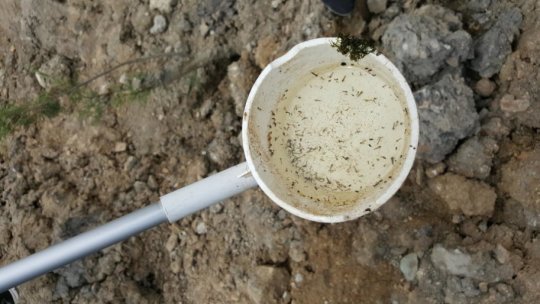[ad_1]
In a context of overuse of insecticides, which leads to the selection of resistant mosquitoes, it is already known that this resistance to insecticides affects interactions between mosquitoes and the pathogens they transmit. Researchers from the Institut Pasteur (Paris) and its partners prove that mechanisms of insecticide resistance, observed in Culex quinquefasciatus vector, impact the transmission of West Nile virus.
Over the last decades, arthropod-borne viruses (arboviruses) that affect human health such as dengue, chikungunya, Zika or West Nile viruses have taken the center stage owing to epidemic outbreaks or even pandemics affecting the world. In the absence of vaccines and therapeutic treatments, the control of arboviruses relies mainly on the control of mosquito populations.
The consequences of the overuse of insecticides
The use of insecticides has long been the unique method to reduce mosquito densities and thus interrupt the transmission of arboviruses. However, the overuse of insecticides leads to the selection of mosquitoes with insecticide resistance genes. Insecticide resistance has been reported to affect interactions between mosquitoes and the pathogens they transmit.
“We provide the first evidence of the impact of two main mechanisms of insecticide resistance on arbovirus transmission,” explains Anna-Bella Failloux, Head of the Arboviruses and Insect Vectors laboratory at the Institut Pasteur.
Vector competence to two arboviruses
“Using experimental infections, we compared the vector competence of insecticide-resistant and -susceptible Culex quinquefasciatus mosquitoes (target modification and overproduction of detoxification enzymes) to two arboviruses, Rift Valley fever virus (RVFV) and West Nile Virus (WNV).” For RVFV, vector competence remains unchanged whether the mosquito is resistant or susceptible. However, resistant mosquitoes transmit better WNV than susceptible mosquitoes.
“Our results underscore the importance of understanding the effects of insecticide resistance on vector competence and require reconsidering vector control strategies by limiting the production of insecticide-resistant mosquitoes.”
Story Source:
Materials provided by Institut Pasteur. Note: Content may be edited for style and length.
[ad_2]















